An Olympic boxer who failed a gender eligibility test was allowed to compete after the opponent abandoned the fight after just 46 seconds.
The Olympic Games have always been a stage for the best athletes in the world.
However, they also raise many questions about fairness and eligibility, especially regarding gender.
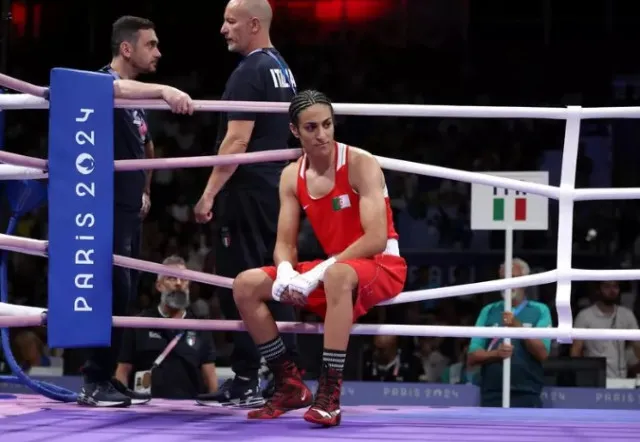
Recently, an Olympic boxer faced scrutiny after not passing a gender eligibility test. Despite this, she was allowed to compete in her match.
This situation has sparked discussions about the rules and policies surrounding gender in sports.
The Olympic boxer was once excluded after DNA test showed XY chromosomes.
According to the report, Imane Khelif was disqualified from the 2023 IBA Women’s World Boxing Championships after a DNA test showed she had XY chromosomes.
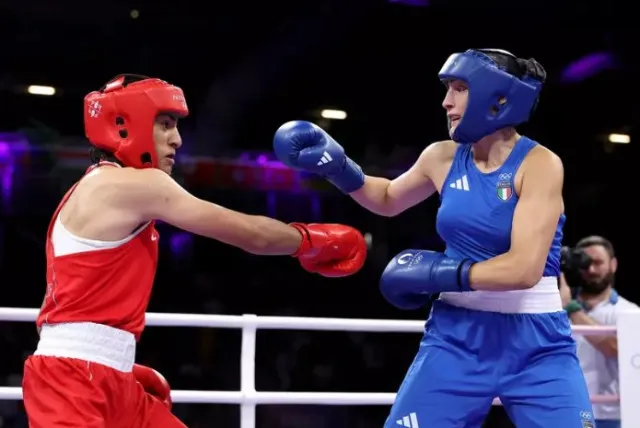
The test indicated she did not meet the requirements to compete in the women’s category.
“Based on the results of DNA tests, we identified many athletes who tried to deceive their colleagues and pretended to be women,” Kremlev said at the time.
“As the results of the tests, it was proven that they have XY chromosomes. Such athletes were excluded from the competition.”
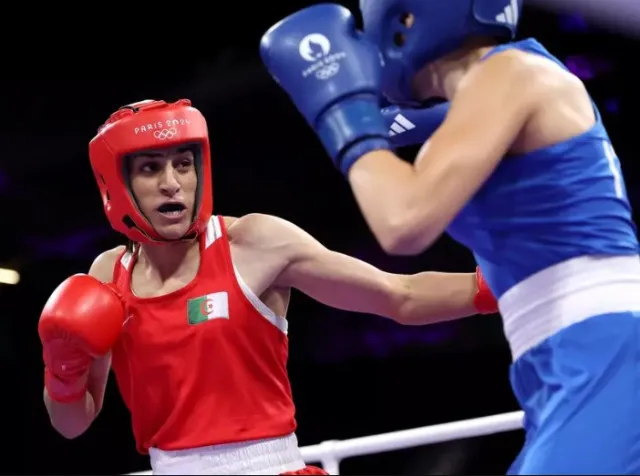
The Olympic boxer moved straight into the quarterfinals after her rival abandoned the fight just 46 seconds.
However, The International Olympic Committee (IOC) has confirmed that Khelif can compete in the women’s boxing events at the 2024 Olympics.
This sensitive decision has caused a stir in the sports world, as it involves questions of fairness, inclusion, and human rights.
In this case, Khelif was still allowed to compete because her opponent abandoned the fight just 46 seconds into the match.
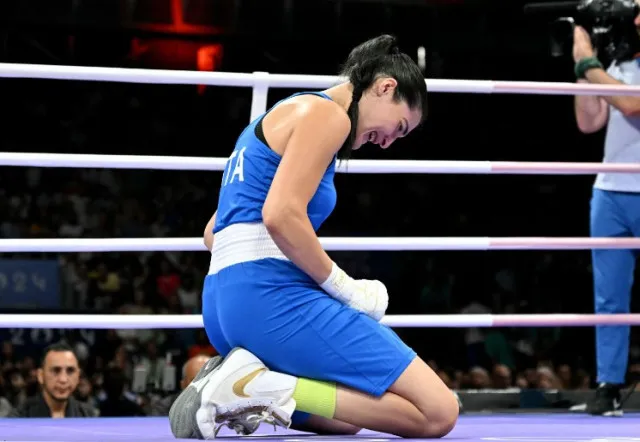
The match against Angela Carini from Italy was highly anticipated, but it ended quickly.
Carini reportedly raised her hand, had her head guard checked, and then landed one punch before walking out of the ring.
Carini quit just 46 seconds in after being punched twice in the face.
“This time I didn’t succeed because I couldn’t fight anymore,” she emotionally said in an interview.
“To be honest, I put an end to the match because after the second blow, after years of experience in the ring and a life of fighting, I felt a strong pain in my nose,” Carini recounted.
“I went into the ring to fight. I didn’t give up, but a punch hurt too much so that’s enough. Im leaving with my head held high,” she concluded.
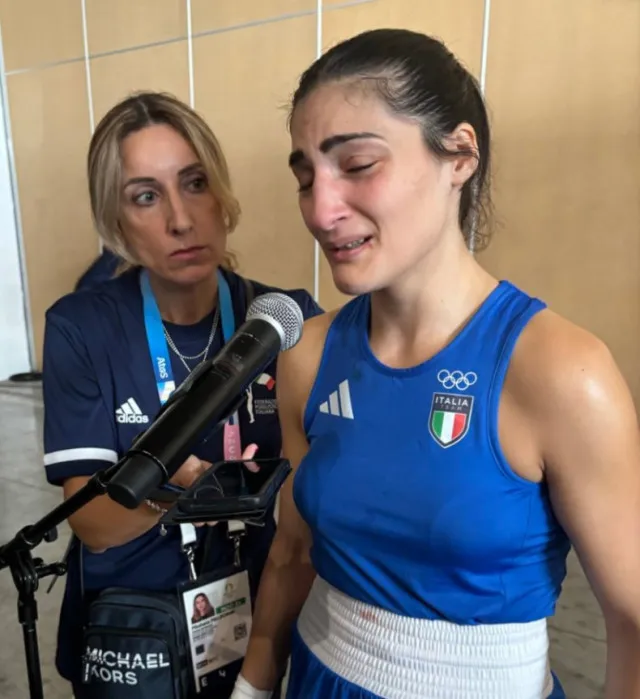
Therefore, Khelif moved straight into the quarterfinals after her round of 16 opponent, Italy’s Angela Carini, abandoned the fight.
Khelif tried to hug her opponent, but it was not welcomed.
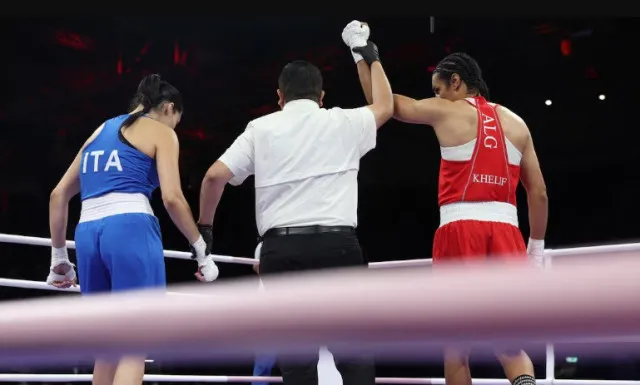
Why is Khelif still allowed to compete despite not passing the gender eligibility test?
Khelif’s appearance raised eyebrows, as many wondered how a boxer who failed the gender test could still participate.
Remarkably, Khelif has always identified as a woman and has never identified as a man, transgender, or intersex.
Therefore, despite failing the gender eligibility test from IBA, Khelif still has been allowed to compete.
This is because the IOC was responsible for overseeing this year’s Olympic events.
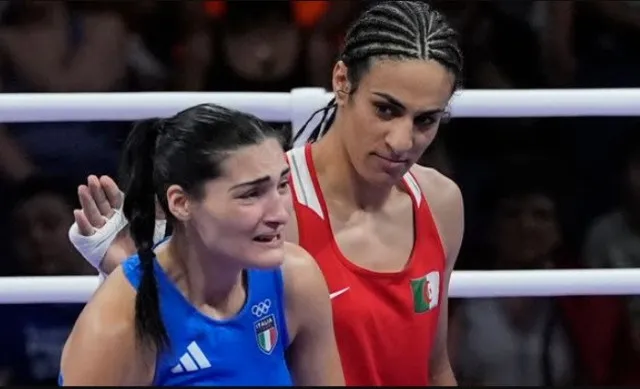
The IOC has consistently confirmed Khelif’s eligibility to compete in the women’s boxing events.
“All athletes participating in the boxing tournament of the Olympic Games Paris 2024 comply with the competition’s eligibility and entry regulations, as well as all applicable medical regulations,” the IOC said in a statement.
An IOC spokesperson, Mark Adams, further clarified:
“These athletes have competed many times before for many years; they haven’t just suddenly arrived.”
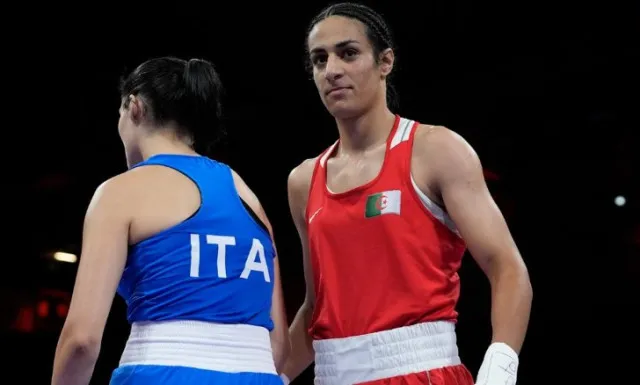
This suggests that the IOC has looked into Khelif’s case.
They have decided that she meets the requirements to compete in the women’s category, despite her earlier disqualification.